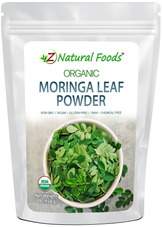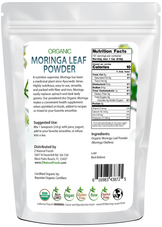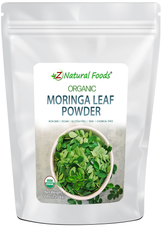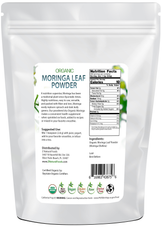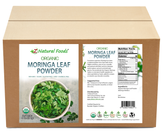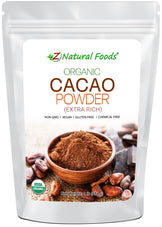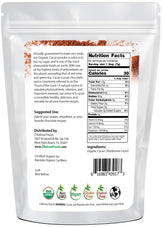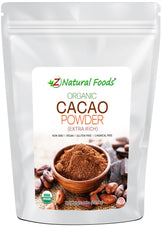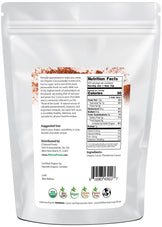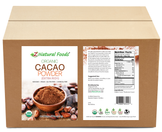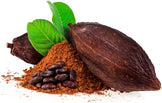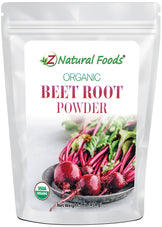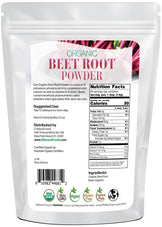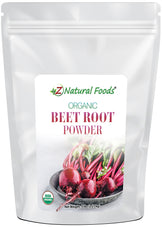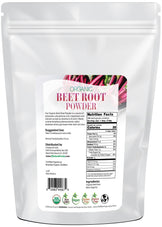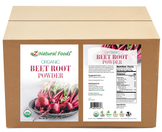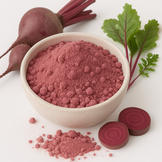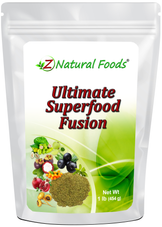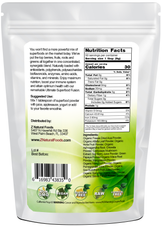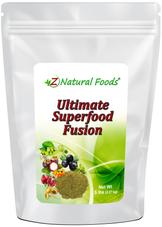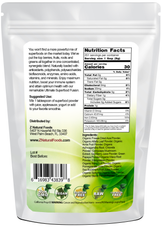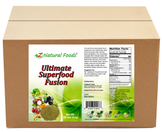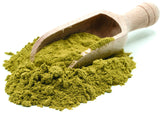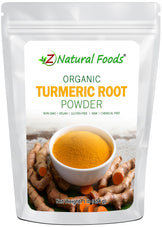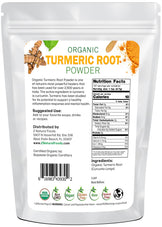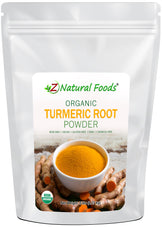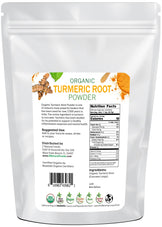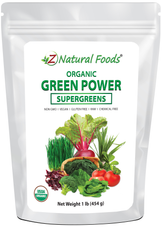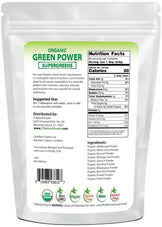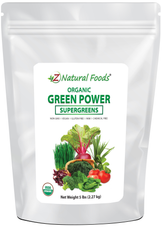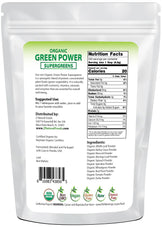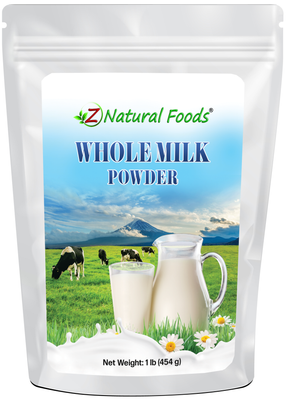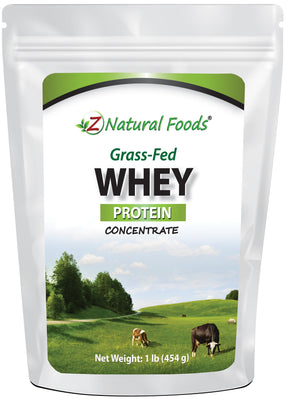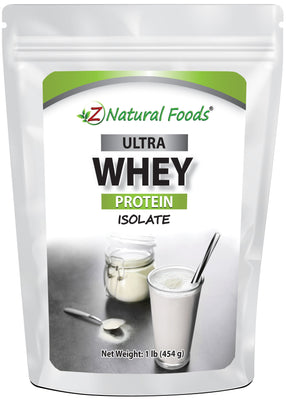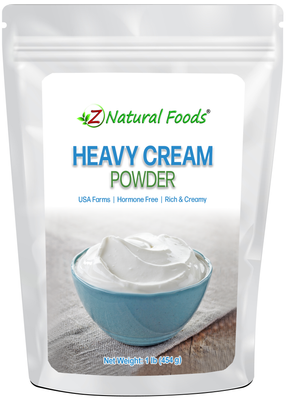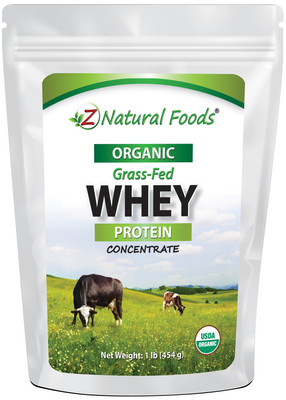Hi everyone, Mike Stuchiner, Master Herbalist here with Z Natural Foods, and today's video is going to be on the topic of what is better: protein concentrate or protein isolate. But before we get started, I do need to mention two things. One, for more information about me, please go to my YouTube channel at, "A Master Herbalist's Perspective." And number two is our health disclaimer, which is: the information you're about to receive is for educational purposes only and is not intended to treat, prescribe, or diagnose any specific or general medical conditions. It is also not intended to be a replacement for your primary healthcare provider's diagnosis, treatment protocol, and medical information. With that said, let's get started.
Some of the more popular questions we get at Z Natural Foods are related to the benefits and uses of protein powders. While deciding which source of protein powder is best for you may seem like your top priority, a related topic regarding the differences between a protein concentrate and isolate might actually be more important when attempting to maximize your protein powder benefits. So today, I'm going to answer the question of what is better: a protein concentrate or isolate. As always, I don't just answer your questions. I give you a thorough explanation as to why and provide critical details necessary to understand what you're about to hear.
In simple terms, how we define "better" in this specific particular case is relative to the individual's goals, how well that individual utilizes what they consume, and the purpose for using a specific form of protein at a particular time. To answer this question correctly, let's review a few fun facts about proteins and the role they play in the big picture. So let's begin with denatured versus undenatured protein.
Denatured protein is the alteration in folding patterns of protein by heat or chemical reaction from its original formation. Protein function depends on its structural shape, and heating causes proteins to vibrate, weakening the bonds that hold this complex shape. Undenatured protein is pure, properly functioning proteins without structural deformation, with all bioavailable nutrients and constituents. It's important to note that we at Z Natural Foods do not use the term "unprocessed" to define undenatured protein because everything goes through some processing to create an end product. For example, whey protein isolate goes through a very precise filtration process, removing the lactose and producing an end product yielding a higher amount of protein. Per serving with less fat and carbohydrates. Undenatured proteins are the purest form containing all bioactive compounds, as nature intended, like beta-lactoglobulin and alpha-lactalbumin, immunoglobulins, and lactoferrin. In a perfectly balanced state, a protein denatured through cooking with heat or some other process is not necessarily a bad thing. For example, a hard-boiled egg is regarded as a form of denatured protein, the heat used to make the hard-boiled egg changes its structural integrity, but overall it's still an excellent nutritional source, and all the amino acids necessary to form a complete protein, essential and non-essential amino acids and protein storage.
There are 20 different amino acids that your body needs for various functions. 11 of the 20 are produced by the body, called non-essential amino acids. The other nine, called essential amino acids, we get from food because the body cannot produce them on its own. Proteins are not stored for later use. The body converts excess protein into glucose and triglycerides to supply energy and build energy reserves. When we eat a complete source of protein, the body breaks it down into amino acids to create muscle protein, along with a host of other proteins in the body for what are known as enzymatic reactions. The nine essential amino acids also act as what is known as regulatory signaling molecules. All the body is concerned about is having nine or nine essential amino acids when creating muscle and enzyme proteins. The overall result is the same whether the protein comes from one source, which would be like a concentrate or a combination of sources like plant protein. To be clear, this is not me saying that other factors don't affect the value and utilization of different sources of protein. It's just what I am trying to send out there as a message is, in the bigger picture, our body ultimately really does not know the difference. As long as those amino acids are present in the body, we can do so. The difference between a protein powder concentrate and an isolate is comparing a protein isolate and concentrate comes down to what you gain versus what you lose. As I stated earlier in this video, protein powder concentrates are considered the closest products intended to provide us with a high-quality source of protein with all cofactors and constituents available for a balanced and complete source of nourishment.
The term concentrate, though, can be slightly misleading, as it implies that the consumer is getting a quantitatively more significant amount of protein. This is simply not the case. You are getting a more well-rounded end product with a greater spectrum of uses that may benefit overall health. Whey protein isolates, on the other hand, are a more refined product yielding a higher amount of protein with the goal of specific targeted action and application. Generally speaking, whey protein isolate, as an example, is a complete protein yielding approximately 90% protein concentration. It contains no fat and carbohydrates unless some of it is high in branched-chain amino acids, especially leucine. It is considered an undenatured protein. However, if the raw material company uses a filtration process that uses heating components, it may denature the proteins. But components like beta-lactoglobulin, alpha-lactalbumin, and immunoglobulins, and lactoferrin are proteins by definition. Contrary to popular opinion, whey protein isolate does contain these critical factors, just in smaller amounts. Whey isolate may contain tiny amounts of lactose as well. Whey Protein Concentrate is a complete protein yielding approximately 80% protein concentrate, approximately three grams of carbohydrates, and two grams of fat per average serving. Whey Protein concentrate has many other components in fairly high amounts, like as mentioned before, beta-lactoglobulin, alpha-lactalbumin, immunoglobulins, and lactoferrin. It is a quality source of branched-chain amino acids, and it is an undenatured protein. Once again, whey concentrate does contain lactose.
Therefore, the difference between isolate and concentrate comes down to the three following ideas: how much protein, carbohydrates, and fat you're getting in the product, the intrinsic details about the conditions under which the product is produced to create the end product, and the individual's specific standards or needs. So this leads me to another area of this video I want to discuss, which is, which is easier to digest, whey isolate or whey concentrate? I stated in previous protein articles I've done that the biological value of protein is one of many markers that determine how well biological value measures how efficiently the body utilizes each source of protein from different foods with a high biological value correlating to an increased supply of essential amino acids. The equation of biological value is calculated from nitrogen used from tissue formation divided by the nitrogen absorbed from food, then multiplied by 100. In simple terms, it's the percentage of nitrogen utilized. Nitrogen is the core component of amino acids, the building blocks of protein, and nucleic acids, the building blocks of genetic material. Whey protein, for example, has a biological value of 104.
Generally, each individual's ability to digest whey can vary significantly based on factors like lactose protein concentration, carbohydrate sensitivity, and the effects on blood sugar that comes in. For those who tolerate whey protein well, the isolated version seems easier to digest and more efficient to utilize due to the absence of fat and carbohydrates. Whey concentrate contains a more significant amount of lactose and some fats and carbohydrates. Therefore, some individuals may not be as efficient at utilizing this protein form, especially if they are lactose intolerant. If a protein is producing gas, bloating, and goes right through you within two hours of ingestion, this may not be the best source of protein to optimize your results. Please keep in mind one factor. Many people have incredibly mild or delayed reactions to foods that may not appear as more significant problems for years. Therefore, it would take a lot of work to connect the dots. In the end, if you see a progression of good results, you are certainly on the right track. Picking the best protein source for you is a crucial part of optimizing your health and fitness goals. Each form of protein has its own unique characteristics and can offer various benefits based on an individual's needs and requirements.
So, which form of whey protein, concentrate, or isolate is better for muscle gain? The answer to this question is not a matter of which is better for muscle gaining, but more importantly, what is the most appropriate time to use each form of protein in order to maximize your benefits and results? There are various theories on this topic, and the answer to this question is quite convoluted and depends on a few different factors: the form of whey or other milk-based protein powders being used, in other words, whey concentrate, isolate, hydrolyzed whey, or casein, and your goals (intended muscle gain, weight loss, blood sugar control, supporting a healthy immune system). All of these things play a vital role in the overall end results.
For example, suppose you want to help with muscle recovery. In that case, that's post-workout because it is isolated from a protein that yields a higher amount of protein and is void of carbohydrates, allowing for faster absorption. While there are mixed opinions about exactly how quickly you should ingest whey post-workout, consuming it within one hour would be optimized. Any carbohydrate source, protein shake, or real grass, and replenish glycogen is often also among the suggestions. Suppose you're creating an intra-workout drink, which means a drink that you consume throughout the workout. In that case, using a high molecular weight carbohydrate like a highly branched cyclic dextrin with a hydrolyzed whey protein will provide the glycogen and amino acids needed for recovery.
To support recovery when you're asleep, drinking whey concentrate or a casein protein is a good choice, as those will act slower or more as what some might consider a time-released form of protein to provide the body with essential nourishment throughout the night.
Because you are getting so many essential nutrients and compounds, high-quality protein, and a good source of fat, whey concentrate is ideal for supporting a healthy immune system and recovery.
In conclusion, whether you're consuming isolate or concentrating on a whey protein, you will provide your body with a wide range of nourishing compounds to support overall well-being. After all these years, it looks like we will Miss Muffet, and the spider that sat down beside her got it right. As you better eat your curds and whey. This is Mike Stuchiner, Master Herbalist with Z Natural Foods. I'll see you next time.



















